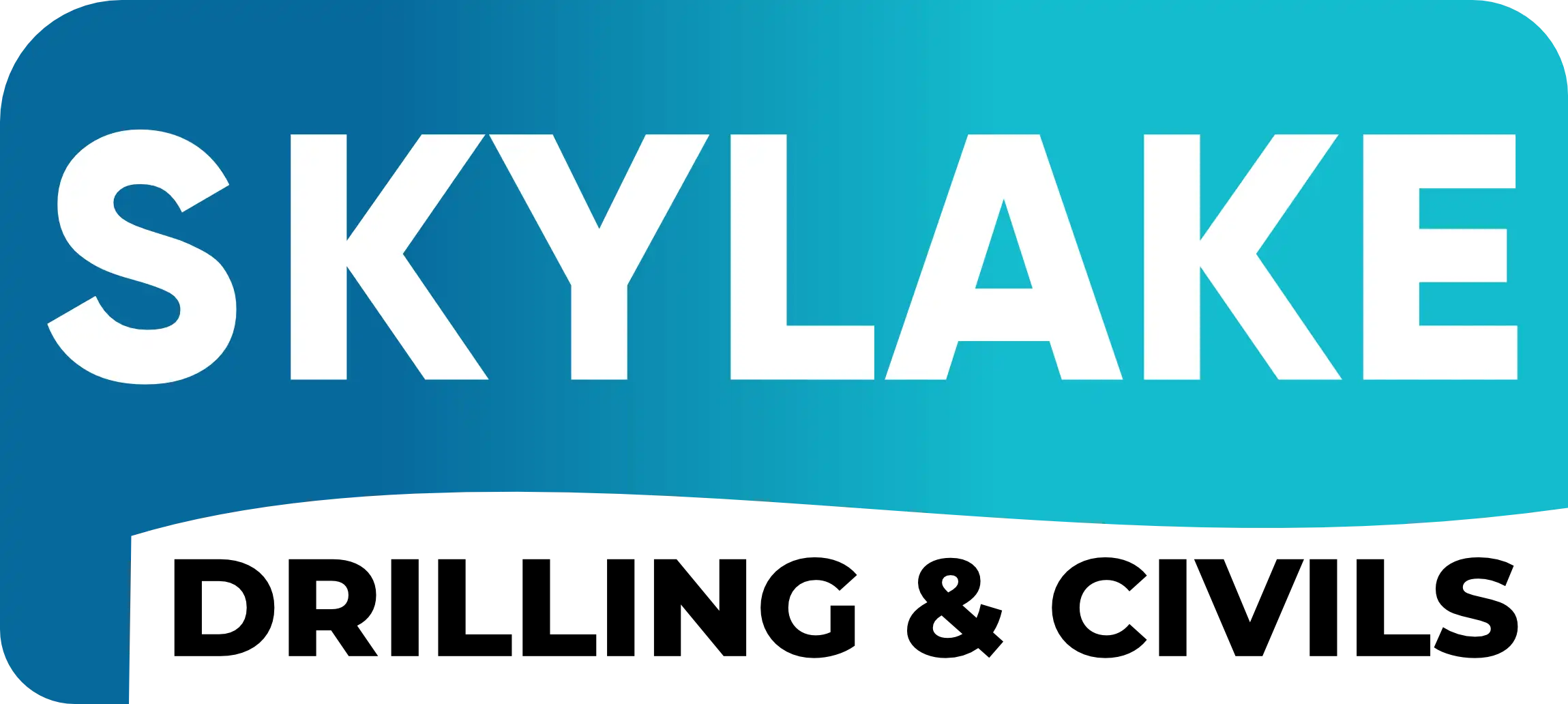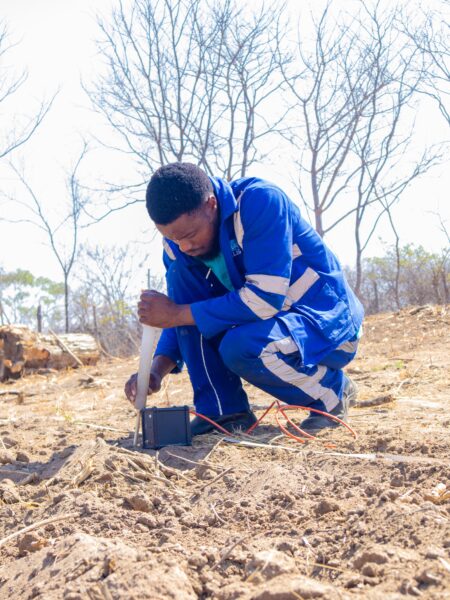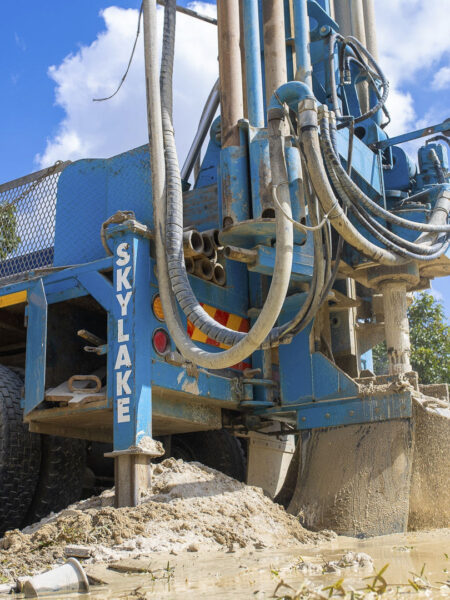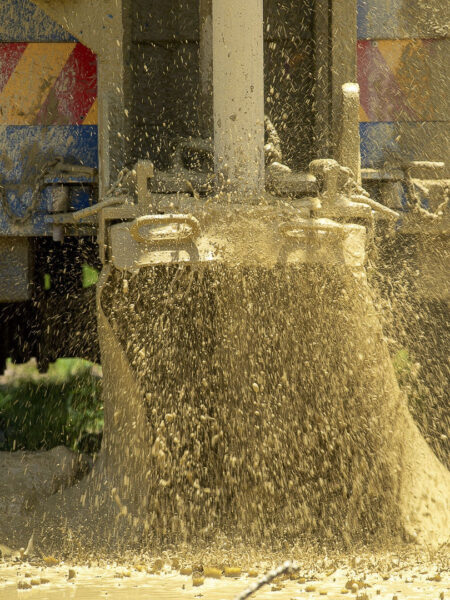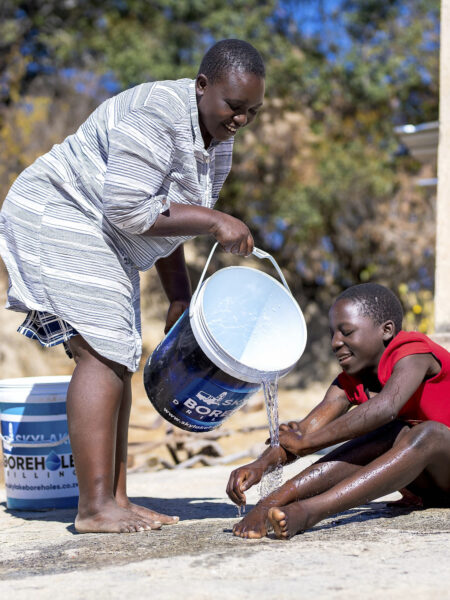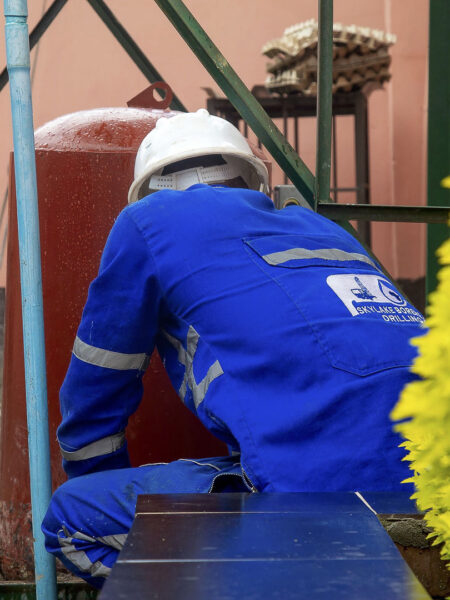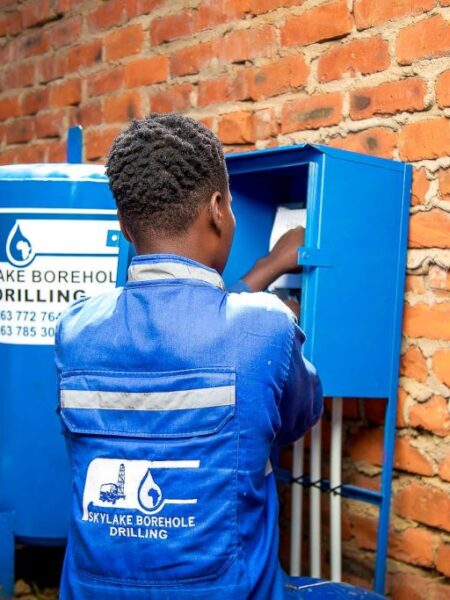Our Services
Water Survey
Water survey is the first and crucial step for your borehole drilling. This may be referred to as siting or water detection in other areas of our work. This will provide detailed information about the subsurface geology, helping to identify the types of rock present.
Borehole Drilling & Casing
Our modern drill rigs are compact and manouverable, allowing us to access any property creating a borehole using rotary or percussion methods, reaching the desired depth as recommended in the siting report. Casings (e.g., Class 10 casing) are installed to stabilize the borehole and prevent contamination.
Capacity Testing
During our borehole drilling process, the output of a borehole measured against the customer’s requirements, will decide what capacity tank and pump is required to be installed. Getting the balance right ensures that the customer always has water on tap.
Water Quality Testing
Testing the water’s quality is important. Not only to ensure it is safe to drink but also to assess its minerality and PH assists in determining how much casing is required and if additional filtration is needed. In some industrial and agricultural applications the water quality requirements can be lower as the water will not be used for drinking.
Tank, Pumps, & Plumbing Installation
As the borehole needs time to replenish, a tank and pump complete the borehole solution. During the capacity testing the size of the tank and pump will be confirmed. Because the system operates 24-7-365, we pumps made by reputable manufacturers.
Maintenance & Repairs
We provide a high level of ongoing after-sales customer care. We help our customers learn how to maintain their systems and are always available to give advice and assistance. In the event of an emergency we are able to quickly assist.
